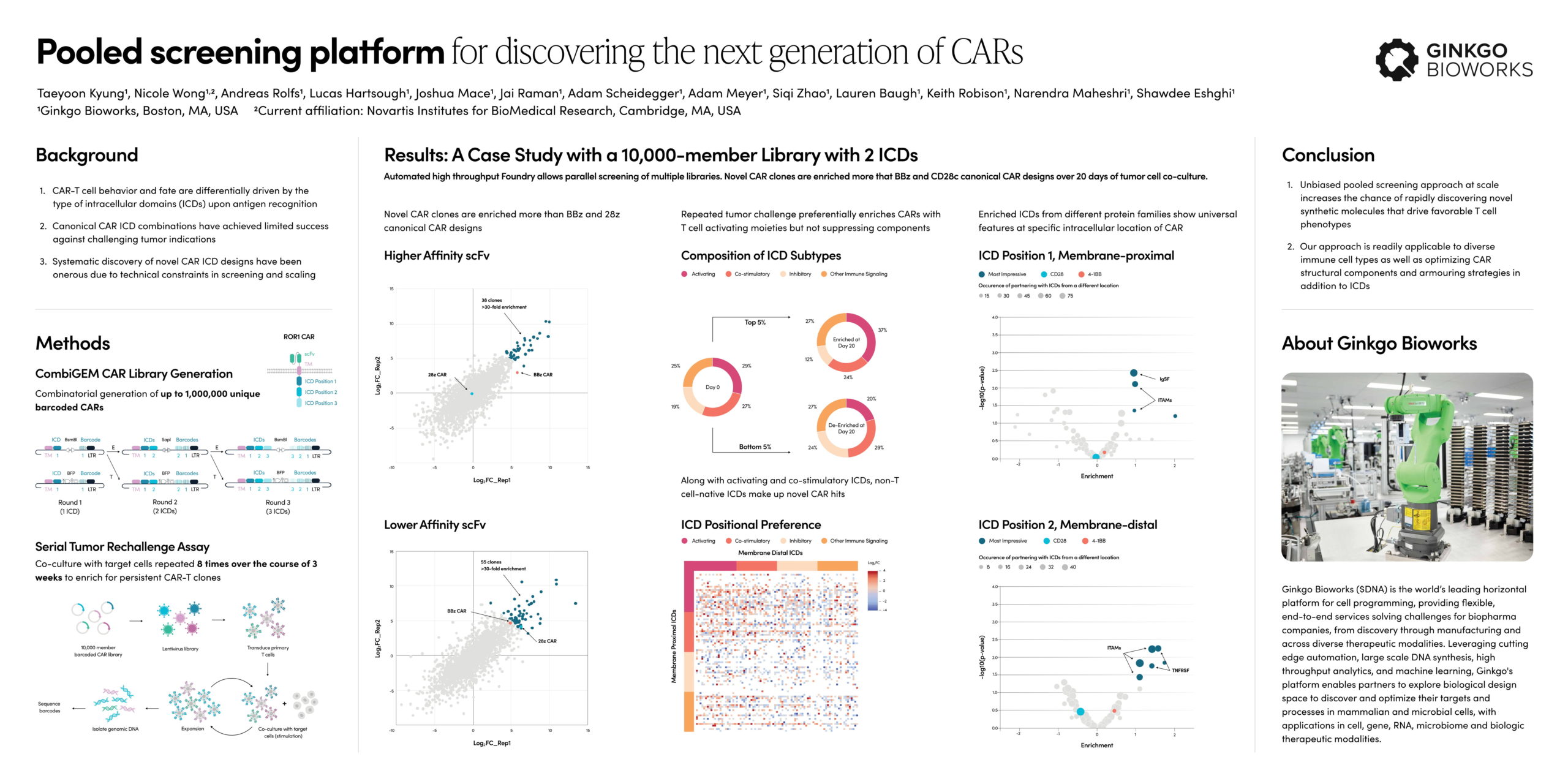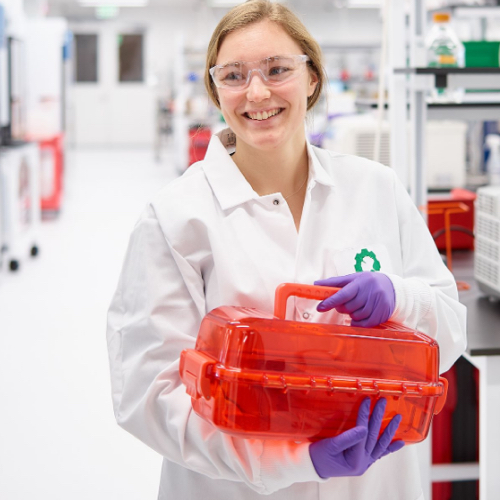Pooled screening platform for discovering the next generation of CARs
Ginkgo is proud to present a poster this Friday, November 11 at the 37th Annual Meeting of the Society for Immunotherapy of Cancer (SITC). The poster highlights our Foundry-enabled methods for large-scale, combinatorial library design and screening of chimeric antigen receptor (CAR) domains for improved persistence. The ability to screen hundreds of thousands of CAR designs in primary human T cells can enable discovery of variants with desired characteristics. This capability has the potential to discover CAR-T therapies that are effective against solid tumors.
CAR-T cell therapies show tremendous promise for the treatment of cancer. But so far, their use has been limited to targeting blood cancers, as CAR-T has failed to show consistent efficacy in treating solid tumors, which represent approximately 90% of adult human cancers. Part of the challenge when applying CAR-T therapies to solid tumors lies in T cell exhaustion, a state of dysfunction arising from excessive antigen stimulation in the immunosuppressive environment of a solid tumor.
Therapeutic outcomes of CAR-T cell therapies—including CAR-T persistence—correspond to T cell behaviors driven by signaling cascades that are triggered by the intracellular domains (ICD) of CARs. Until now, technical constraints in high throughput screening have made the systematic design and testing of novel ICD combinations that drive more favorable T cell phenotypes onerous. New data we are presenting at SITC will demonstrate that our high throughput screening method enables massively parallel testing of CAR designs and has led to the discovery of new ICD combinations that outperform the canonical CD28-CD3z and 4-1BB-CD3z combinations.
Discovering next generation CAR-T cell therapies
Our platform for cell programming enables synthesis and screening of diverse libraries of genetic constructs to explore biological space. Applying these capabilities to the design of CARs enables screening of hundreds of thousands of possible combinatorial variants of different CAR ICDs. The data we will present at SITC will show how this method could be used to screen for variants with increased persistence in a serial tumor rechallenge assay. As an enabling platform company, we can leverage our full stack of mammalian cell engineering expertise and capabilities to enable the high throughput screening of CAR-T cells to discover and optimize next generation therapeutic candidates for our partners.
While innovation in CAR-T cell therapies continues to grow at a dramatic pace, CAR-T is still a relatively new modality whose potential is just beginning to be fully explored. With large scale screening and automation, we have created a tool we believe can dramatically expand the variety and functionality of CAR domains so that our partners can build therapies targeted for particular tumor environments.
“We’ve only seen a small sliver of what revolutionary modalities like CAR-T can achieve in terms of patient outcomes. Being able to explore broader design space for this powerful technology can help unlock new potential in solid tumor treatment, inflammatory and autoimmune diseases, and beyond.” said Arie Belldegrun, Executive Chairman and Co-Founder of Allogene Therapeutics and Kite Therapeutics and member of the Board of Directors for Ginkgo Bioworks. “The scale of Ginkgo’s platform helps to enable discovery and innovation in this important arena.”
You can view our poster at SITC. To register, visit www.sitcancer.org/2022.
Presentation details:
Date & Time: Friday, November 11, 2022 at 9 am – 8:30 pm, EST
Title: Pooled screening platform for discovering the next generation Chimeric Antigen Receptors
Presenting Author: Taeyoon Kyung, PhD, Senior Mammalian Engineer, Ginkgo Bioworks
Poster Number: 242
Click here to speak with our team and learn more about leveraging our platform.
Find the full press release here along with all of the latest news from the Ginkgo team.
What will you grow with Ginkgo?

